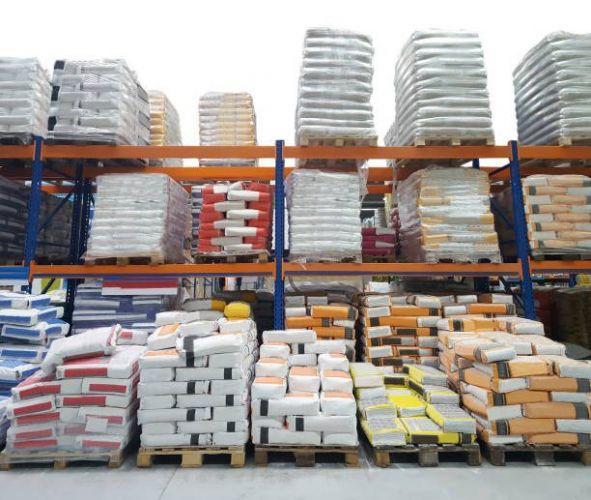Azerbaijan’s construction sector struggles with inflation and declining output Review by Caliber.Az
The upward trend in housing prices for apartments, private homes, and land plots, which began in 2023, has continued into this year.
This trend is driven by several factors, including significant imported inflation from 2022-2023, a slowdown in construction activity in Baku, rising building material costs, and increased demand for local real estate in the post-Soviet region. Despite these dynamics, real estate in Azerbaijan remains a key asset for investors seeking to hedge against financial risks.
Despite a 10 per cent increase in housing prices during the first half of 2024, realtors report that effective demand in the capital market remains weak, leaving uncertainty about future price trends. Baku's residential real estate market has been shaped by a range of internal and external factors over the past two and a half years, contributing to rising prices for apartments, private homes, and land plots.
The construction sector, which saw a sharp decline in activity following the severe pandemic crisis of 2020-2021, has received some relief through state contracts in recently liberated Azerbaijani territories. Nevertheless, the overall dynamics of housing construction in Azerbaijan continue to be negative. According to the Azerbaijani State Statistics Committee, the total area of completed housing in 2022 was 2.593 million square meters, representing a 24.8 per cent decrease from the previous year.
In 2023, there was a 10.8 per cent decline in the volume of new housing construction, with approximately 2.511 million square meters completed. Unfortunately, the dynamics of housing construction did not improve in the first half of this year.
The construction industry, once known for its high margins, is now under significant pressure due to various factors driving up construction costs. Inflation has played a major role, particularly with the sharp rise in prices of building materials imported from countries such as Russia, Türkiye, Kazakhstan, Korea, and China.
The costs of raw materials, chemical reagents, metals, and equipment used by local building material manufacturers have all increased. Additionally, inflation has led to higher expenses for renting construction machinery and equipment, transportation, maintenance services, and labor. Even the costs of diesel fuel and gasoline, essential for operating construction equipment, have risen.

Housing construction cooperatives in Baku are encountering a shortage of affordable vacant plots, affecting both central areas and the outskirts of the city. Recent regulatory changes require stricter compliance with building standards, preventing the previous practice of maximizing built-up areas by reducing non-residential space. Currently, builders can develop an average of 25,000 to 30,000 square meters per hectare, compared to the previous range of 40,000 to 50,000 square meters.
In low-rise construction, standards have been similarly tightened. Builders now need approximately five acres of land to construct a 200-square-meter house, with the allowable development coefficients adjusted to around 0.4.
Additionally, housing cooperatives have moved towards greater transparency, shifting from opaque practices to transparent taxation, including VAT payments. Construction companies are responding to these increased costs by raising apartment prices in new buildings.
These trends also reflect in other real estate segments. The secondary market, as well as prices for low-rise housing and land plots, are experiencing comparable increases. Even properties constructed on plots without building permits or Deeds of Assignment are becoming more expensive. This pattern, observed over the past two years, persisted through March to June 2024, according to data from the Azerbaijani State Statistics Committee.
During the reporting period, average apartment prices in Baku rose by 9.2 per cent compared to the same time last year. Prices for new buildings increased by 10.3 per cent, while those for Soviet-era apartments saw a 9.2 per cent rise.
According to a Qafqazinfo survey of Baku’s real estate market, the most significant price hikes were observed in the Sabail district. In June 2024, prices for two-room apartments in new buildings surged by an average of 18.3 per cent, and in old buildings by 14.2 per cent compared to June 2023. Similarly, in the Narimanov district, two-room apartments in new buildings increased by 15.9 per cent, while those in older buildings rose by 12 per cent. The Nizami district also saw notable increases, with new building prices up by 16.2 per cent and old building prices by 11 per cent.
This price boom in Baku’s real estate market coincides with a period of declining effective demand. Despite high demand for budget housing, supply has sharply decreased.
Vugar Oruj, Chairman of the Azerbaijan Appraisal Society, attributes the rising real estate prices to the frequent use of property as an investment asset. Unlike annual bank deposits, which average a 10% return, real estate appreciates by about 15 per cent per year.
Oruj notes that increased interest in real estate is partly due to its rising rental yields. Additionally, there has been growing interest from former compatriots with businesses in Ukraine and Russia.
Investments in real estate by financial organizations, investment funds, and wealthy individuals are also seen as a reliable method for risk hedging in Azerbaijan's current economic environment.

However, the upward trend in real estate prices cannot continue indefinitely. Current prices have reached a peak that does not align with average salaries or anticipated economic growth. As a result, real estate expert Ramil Gasimli predicts a slight decline in market prices.
Gasimli attributes this potential decline to the need for increasing the supply of apartments through the Azerbaijan Mortgage and Credit Guarantee Fund's rental mechanism, which includes an obligation for future purchase. From 2019 to mid-July 2024, only 5,078 rental agreements were signed in this segment, which falls short of meeting the much larger demand from Baku’s residents.
Mortgage loans issued by local banks under the Azerbaijan Mortgage and Credit Guarantee Fund amounted to 230.2 million manat ($135 million) in January-June 2024, representing a 5.5 per cent decrease compared to the same period last year. There has been no growth in social mortgage allocations, with state budget funding for the Azerbaijan Mortgage and Credit Guarantee Fund remaining at 43.9 million manat ($25.8 million), the same as the previous year.
To address the situation, increasing state funding for social mortgages is crucial. This, in conjunction with the activities of the State Housing Development Agency (MIDA), which has been instrumental in constructing numerous social buildings, can help alleviate market pressures.
New legislation facilitating the use of agricultural land for residential construction and updated regulations for connecting construction projects to water and utility networks should streamline the work of construction companies. Strengthening public-private partnerships in preferential mortgage financing and increasing the allocation of affordable land for MIDA's social initiatives are essential steps to boost supply and help stabilize real estate prices.








